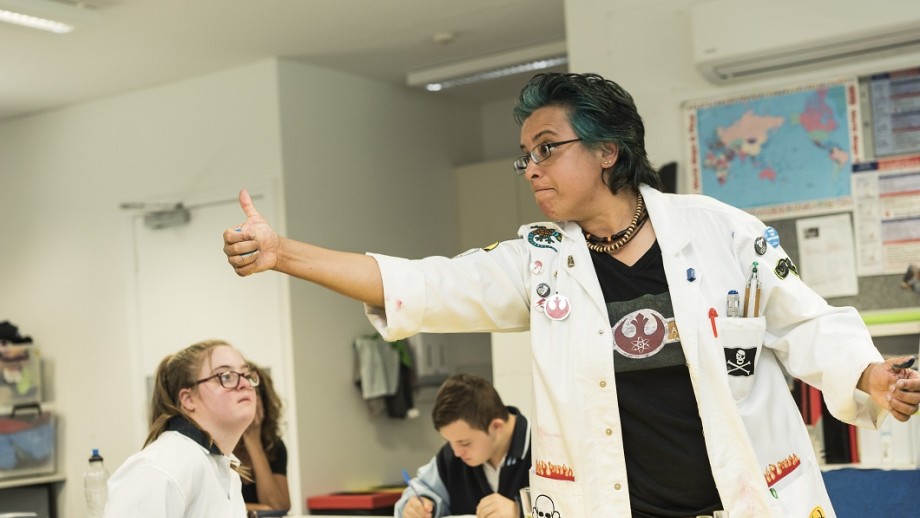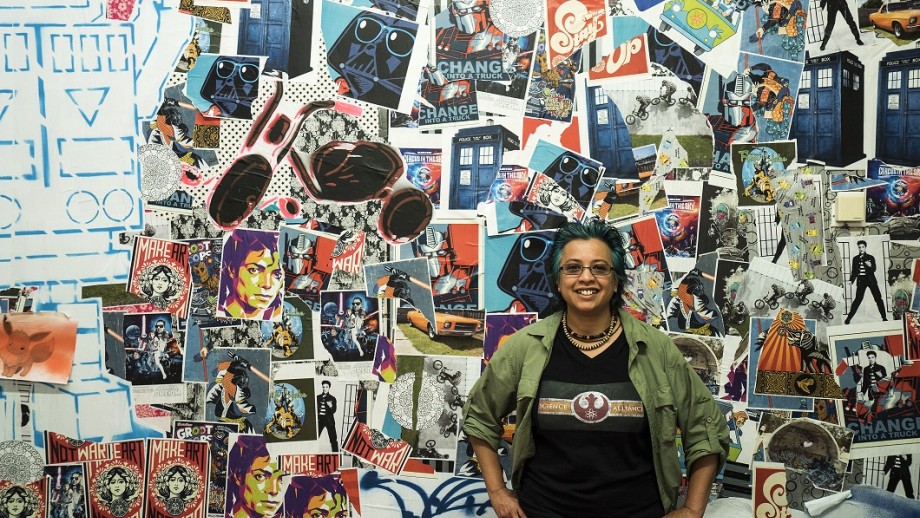When science skills become life skills

If you want to teach someone how to catch a bus, build them a balloon rocket.
This is what Vanessa de Kauwe has discovered in her PhD research for the Australian National Centre for the Public Awareness of Science at ANU.
For two years, de Kauwe has been wheeling her cart filled with propellers, magnets and balloons into classrooms which have never seen science experiments before, and doing science.

“I have been working with 60 students with intellectual disabilities schools around Australia,” she says, “and delivering them science in a way that allows them to exercise observation, logical inquiry, and rational response.”
“I walk the students through the steps almost manually. Take a balloon rocket: What did you see? What did your eyes tell you? What does that tell you from what you saw? And where? And how big? And to what extent?
“Now we know what you saw. Next, we can ask what you know about it. How? Why?
“It can take up to ten weeks to get the science out of it. For example, the first thing we go through is mixing colours. We start with naming colours and by the end of the ten intense weeks, we’re talking about optics and prisms.”

This might seem like an obvious approach to teaching science but it is, de Kauwe says, completely new for students with intellectual disabilities.
“A 2016 Senate Standing Committee found there has been zero to little science taught to students with intellectual disabilities in schools in Australia.
“This is because the attitude we’ve had towards intellectual disability is that their education has to focus on their daily living skills and safe social practices.
“If we’ve already predetermined that because these people have an intellectual disability they don’t have an intellect and therefore don’t get an intellectual education, we have not let them access their thoughts.”
De Kauwe’s science education program assumes that “there is no disability which takes you beyond the capability of doing science.” It’s just about exercising the right muscles.
“If a person has a physical disability, we will do everything we can to work them through the steps of managing that disability.
“With intellectual disability you can do the same thing, but it’s about taking a student through the steps of thinking.”
The result is not only scientific knowledge, but a transference of those scientific skills—observation, logical inquiry, and rational response—into other areas of students’ lives.
“Because of the science, their daily living and social skills also actually improved.
“We did interviews with parents and school staff over the course of a year and unanimously they said students’ communication improved as an attributable effect of the program. We had some students who weren’t talking who started to talk after the science program.
“We had students who were able to get jobs because the science program taught them about understanding processes and improving processes.
“We had students who were able to undertake independent travel for the first time because now they could understand tables, like you’d find in a table of results, but also in a bus timetable.”
Some of de Kauwe’s former students are now involved in the teaching process, being, she says, “the biggest experts in their own experience.”
The program has also expanded internationally, having been taken up by Science Circus Africa, but de Kauwe would like to see it adopted more widely in Australia too.
“That’s why I’m doing this research,” she says. “So I can demonstrate the measurable value of what we’re doing in the classroom to the lives of the students, and do more of it.”

In the classroom is exactly were de Kauwe wants to be.
“I bloody love it,” she says of teaching. “I volunteered to work with people with disabilities straight out of school, and I stayed doing that kind of work for 14 years. They understand me, and I understand them.”
“And the responses they give once they start thinking for themselves are sometimes brilliant. I’ve asked them if they understand why it’s brilliant, and then they can see for themselves.
“You don’t get that anywhere else. A free, new mind.”
